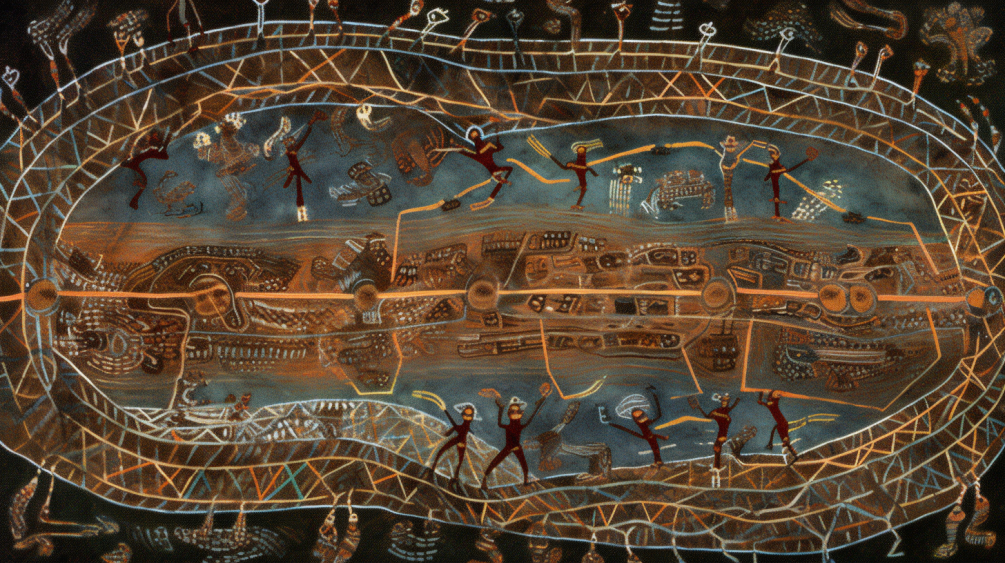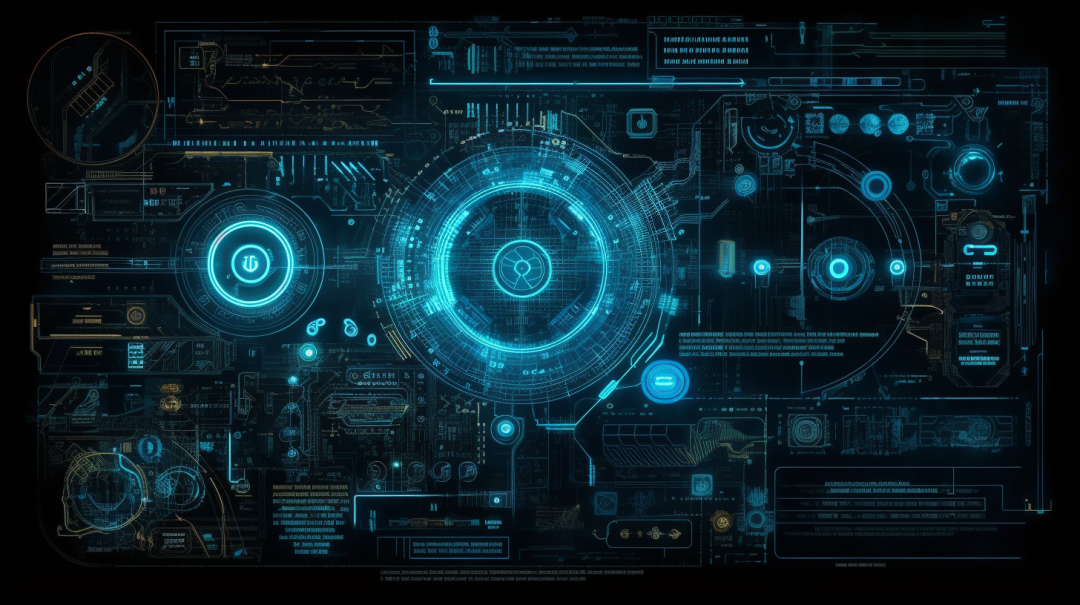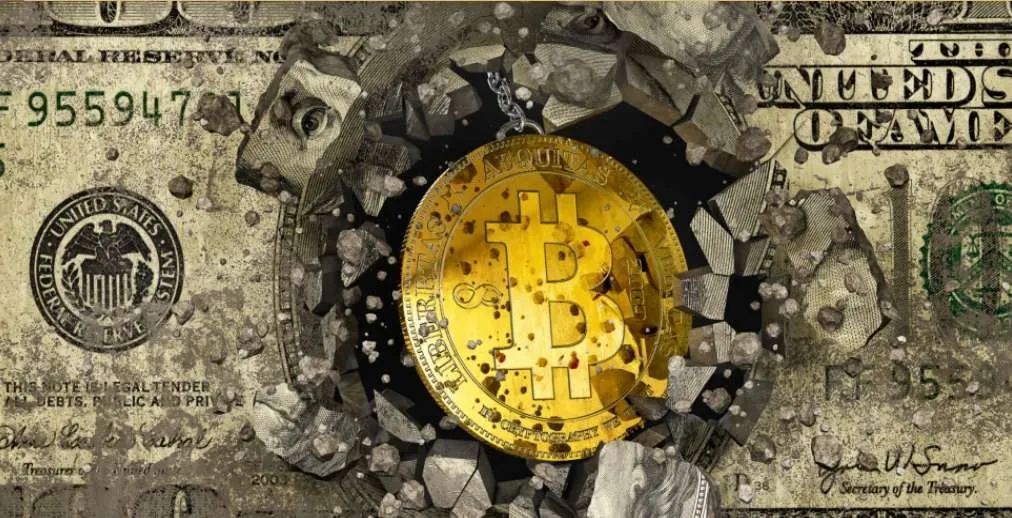Data Consensus Rebuilding the Trust System and Returning Digital Oil to Individuals
Rebuilding Trust System and Returning Digital Oil to Individuals
As a crucial part of human social development, our trust system has been controlled by soft authoritarianism represented by capital and big data. Humans are gradually losing data sovereignty and even the most precious free will. With the help of blockchain and zero-knowledge proof technology, we finally have the hope to replace consumer hedonism and algorithm guidance with “data resonance,” and regain the lost personal data control.
By Weng Hao, Co-founder of Wabosanguan
Editor: Kaka
- Interpreting the RWA track of on-chain real estate Can it revolutionize the traditional trading and leasing market?
- Interview with Uniswap Founder Handing Over Routing Issues to the Market through UniswapX
- Can blockchain revolutionize the traditional real estate transaction and leasing market?
Modern capitalism has turned into a new form of soft authoritarianism, shaping false consciousness through forced consumption and algorithmic guidance, dwarfing our thinking ability and hindering the birth of a better society. People live monotonous and repetitive lives, forced to join various production organizations and suffer from capital exploitation.
And emerging phenomena like the Metaverse are easily manipulated by various algorithms and narratives, shaping people’s thoughts and behaviors invisibly.
We are gradually losing our most precious free will.
01. The Evolution of Trust: Key to Human Social Development
The concept of trust has been a thread throughout human history. It is not only the bond of emotional connection between people but also the glue of social progress. In early societies, people needed to trust each other to share resources and engage in hunting, thus establishing the initial communities. Without trust, effective collaboration would not be possible, and human society might perish in its early stages.
As the wheels of history roll forward, society becomes increasingly complex, and the value of trust becomes more apparent. People hold various forms of credit currency, trusting that central banks can guarantee the purchasing power of money; people exchange their earned income for bank savings, trusting that banks, laws, and regulatory agencies will safeguard their funds’ security; people stroll the streets of the city late at night, trusting that strangers will not pose a threat to them and trusting that the city’s security agencies can ensure personal safety. This expansion of trust enables people to engage in social exchanges on a larger scale and with higher efficiency, driving economic development and social progress. Commercial transactions, contract signing, and even international diplomacy all require trust as a foundation.
However, history has taught us that the abuse of trust can lead to serious consequences. In the global financial crisis of 2008, investment banks in the United States abused the trust of investors in their professional capabilities and created a heap of highly risky financial products, ultimately leading to the collapse of the global financial system. There is also the Facebook data privacy scandal, where the trust of billions of users in Facebook was abused, and their personal data was indiscriminately used for commercial promotion and political propaganda, severely damaging data privacy rights worldwide.
Therefore, the important problem we currently face is how to establish and maintain high-quality trust relationships among strangers, while managing and reducing information asymmetry to avoid the abuse of trust.

02. Construction of Trust: The Power of Narrative
The formation of trust is a complex and subtle process, which is usually based on our understanding of the world, and this understanding largely depends on the narrative environment we are in. However, this narrative environment is not naturally generated, but controlled and shaped by specific individuals, groups, or institutions. They not only determine which stories will be told, but also how these stories will be told. This is the power of narrative. This concept may sound abstract, but in fact, it is everywhere, such as news reports, history textbooks, movies, novels, and even brand advertisements.
Narrative is actually the weaving of complex real-life situations into stories that are easy to understand and remember. In this process, the author emphasizes certain details, shapes specific values and themes, and forms a specific interpretive framework. Over time, these stories form our fixed impressions, which in turn affect our understanding of the world and even our trust in others. For example, Coca-Cola’s advertisements always construct a picture of a happy and warm life, and subconsciously, we associate “Coca-Cola” with good times.
In history, the power of narrative was often held by royal and religious authorities, who maintained trust chains by controlling narratives. Ancient monarchs claimed to be descendants of gods to ensure their ruling status and to instill trust in the monarchy; religious authorities constructed specific religious narratives through religious doctrines such as the Bible and the Quran, in order to maintain their belief systems and instill trust in the church. India’s caste system provided sacred legitimacy for its hierarchical order through profound cosmogonic myths, shaping a trust system that millions of people still accept and cannot challenge to this day.
With the progress of history and the development of technology, the distribution of this narrative power has begun to change. Technology has brought us more information, more stories, and also more narrative power. Not only governments and educational institutions, but even ordinary people can share their stories and shape their narratives through the Internet. This makes narrative more diverse and the formation of trust more complex.
However, this does not mean that the concentration of narrative power has disappeared. On the contrary, new forces are grasping the power of narrative, and they are capital and big data. By controlling technology and using big data, they are redefining our narrative environment and changing our trust system. Their influence is not only reflected in the business field but is also changing our social structure and values.
03. Trust in the Digital Age: Narrative Control of Capital and Big Data
Since the Industrial Revolution, the narrative of scientific rationality has gradually dominated our world. The widespread use of electricity, the invention of airplanes, the rise of computers and the internet – every step of technological innovation has been changing our understanding of the world and leading us to have unprecedented trust in technology. We believe that science and technology are the key to solving problems and improving our lives. However, over time, the power of scientific narrative is being redefined by capital and big data.
In the late 20th century, the rise of consumerism and big data in capitalist societies brought about a new shift in power struggles. Large corporations and governments use the collection and analysis of big data to develop more precise marketing strategies and policy decisions based on consumer preferences and behaviors. This allows them to regain control of the social narrative, shaping and guiding public perceptions and behaviors. In this process, capital does not simply accept scientific narratives, but instead dominates and shapes them, combining science with commercial interests and leading the direction of technological innovation.
Take social media as an example. Although it was initially seen as a tool for free expression and global connection, it is now mostly regarded as a platform for promoting consumerism and personalized advertising. Big data technology enables social media companies to accurately understand user preferences, habits, and behaviors, and then transform this information into tools to drive user consumption. We are no longer just users of social media; we have become products ourselves. Our actions, emotions, and even trust are analyzed by algorithms and transformed into capital profits.
We no longer solely trust in science and technology; we also begin to trust the capital and brands that possess technology. We trust in the products and services they provide, and trust in their algorithm recommendations. In the face of increasingly complex technology, we choose to trust their expertise and explanations.
However, this trust relationship is not equal. Capital and big data control the power of narrative, gaining the power to filter and sort information, determining which information can receive people’s priority attention. They are shaping the values of this world, defining the needs and desires of ordinary people.
This narrative power is no longer just about understanding technology, but about how we perceive ourselves, how we understand and respond to the world, ultimately determining the future form and values of our society.

04. Crisis of Diversity: Hazards of a Single Trust System
In the era of big data, modern society is increasingly willing to accept the mainstream narrative of the environment it is in, trusting in a single trust chain without realizing its dangers. In this data-driven world, our actions, thoughts, beliefs, and even dreams are quantified to guide our decision-making. This quantitative approach often overlooks the complexity and diversity of individuals, reducing us to a pile of data, depriving our inner world of its essential diversity and richness.
In the past, the monopoly of narratives often meant the solidification of power and became an obstacle to social progress. For example, in medieval Europe, it was long under the control of the church’s narrative. People trusted any interpretation from the church, making it difficult for new ideas to grow, and social development was stagnant. With the arrival of the Renaissance, Europe began to re-examine the cultural heritage of ancient Greece and Rome. Scientists, artists, and scholars began to challenge traditional ideas, and European society gradually moved towards modernization.
This clearly shows that diversified narratives can promote the collision of different perspectives, trigger innovative thinking, form new trust systems, and promote social progress. However, in modern society, the narrative power of big data and capital is leading us towards homogenization, and new technological religions and capital religions are forming, selectively ignoring or blocking innovative ideas that do not conform to the mainstream.
The relationship between narrative diversity and trust is delicate. On the one hand, diversity can enhance the vitality and innovation capability of society and promote social development; on the other hand, diversity may lead to the erosion of trust and the formation of social chaos. This requires us to find a balance between narrative diversity and trust.
We need to recognize that the power of narrative is not only about information filtering and interpretation, but also about how we perceive the world and how we define our own issues. We need to challenge the solidification of power, reshape human free will, and promote the birth of a new order.

05, Reshaping Free Will: Taking Back Personal Data Control
Free will is a human characteristic. People are not controlled by any external forces and have the ability to autonomously decide their own actions and take responsibility for them. However, in the current environment dominated by capital and big data, our free will is being challenged.
Driven by big data, our behaviors, choices, and even thoughts are being precisely captured and predicted. We are increasingly relying on predictive models rather than our own judgments. The narrative of capitalism emphasizes material pleasure and consumerism. In order to maximize profits, they create artificial needs through narratives, encouraging people to obtain satisfaction and happiness through purchase and consumption. Our free will is being quietly eroded.
The key to reshaping free will is to take back control of our data from the control of big data and capitalism. Controlling our own data does not mean resisting big data, but rather understanding and choosing the sources and applications of our data. Only in this way can we avoid being manipulated by big data and capitalism.
Controlling our personal data is important because these data directly reflect our lives, including our preferences, habits, relationships, and even emotions and thoughts. They are the basis for us to deeply understand ourselves and make autonomous choices. We have the right and responsibility to prevent their misuse.
Of course, it is not easy to regain and control data. It requires us to master the skills of data analysis, identify data quality and reliability, and requires appropriate technology, resources, and legal protection. However, the existence of challenges is not a reason to give up action, as it is related to our freedom and dignity. Survival is meaningless, the meaning lies in how we discover and create.

06. Blockchain and Zero-Knowledge Proof: Decentralized Trust and Data Autonomy
Blockchain technology, originated from the radical and independent declaration of Bitcoin, aims to challenge the existing financial system and protect individual economic freedom in a decentralized manner. This radical idea embodies the core spirit of the Bitcoin network and has led to a series of decentralized cryptocurrency projects. Bitcoin founder Satoshi Nakamoto spent 18 months writing the code and then released the Bitcoin whitepaper in 2009. He embedded a message in the genesis block of Bitcoin: “The Times 03/Jan/2009 Chancellor on brink of second bailout for banks,” as a challenge to the unfairness and crises of the traditional financial system. Nakamoto’s goal was to establish a fair, transparent, and unmanipulable new financial system through Bitcoin and blockchain technology.
Blockchain technology, in a decentralized manner, provides us with a new perspective and tool to establish trust between individuals, and may also give us greater control over our own data. Essentially, blockchain is a public distributed database that stores data in an immutable and transparent manner, and ensures data security and consistency through cryptographic algorithms and consensus mechanisms. This decentralized approach means that data is no longer controlled by a centralized entity (such as the government, banks, or large companies), but is distributed among all participants in the network. This relinquishes control of data, and everyone can participate in and verify the authenticity of the data.
This distributed trust mechanism solves many problems in traditional centralized systems to some extent, but it also brings new challenges. One important challenge is how to protect personal privacy while ensuring data transparency and sharing. This is an important consideration for achieving self-data control on the blockchain.
At this point, the emergence of zero-knowledge proofs becomes particularly important. Zero-knowledge proof is a cryptographic method that allows one party (the prover) to prove a statement is true to another party (the verifier) without revealing any other information to the verifier. This means that you can prove that you have certain data or meet certain conditions without publicly disclosing any specific data. This not only protects your privacy but also allows others to trust your assertion. On the blockchain, you can choose which data is made public and which data is verified through zero-knowledge proofs. It strengthens our control over our own data and enables everyone to have complete control over their own data.
For example, under the technology of blockchain and zero-knowledge proofs, the data of online shoppers is stored on a distributed blockchain, accessible only to the shoppers themselves. By using zero-knowledge proofs, shoppers can prove that they meet the participation requirements for promotional activities without revealing specific shopping records.
In the future digital world, blockchain and zero-knowledge proofs will together build a decentralized, transparent, and privacy-protecting data sharing model. This model frees us from the constraints of traditional centralized authorities and single information systems, providing us with the possibility to redefine and establish trust. We can trust such decentralized protocols, trust every publicly verifiable interaction based on these protocols. More importantly, we can start trusting ourselves – trust our data rights, trust our privacy, and trust every decision we make in this digital world.
However, we need to recognize that blockchain is also a new narrative. When some nodes have much higher computing power or much lower energy costs than others, they will have greater narrative power. Similarly, if zero-knowledge proofs are cracked, it may also trigger a systemic trust crisis. We need to judge for ourselves whether we can trust this mechanism. But in any case, it provides a possibility.

07. Data Resonance: Constructing a New Trust System
When we look back at the early days of the Internet, people often had to search for the content they were interested in on their own, as if in a vast library, and with enough patience, they could always find the answers they were looking for. Today, we have the opportunity to regain the sovereignty of our lost data by using the technologies of blockchain and zero-knowledge proofs, preventing central nodes from manipulating our cognition with data. Here, I propose the concept of “data resonance”.
The concept of data resonance originates from the phenomenon of resonance in physics. When two systems with similar frequencies come into contact, they start to resonate, presenting a harmonious match in frequency and amplitude. Although this phenomenon originates from physics, it has profound social and philosophical implications. Resonance does not mean a single replication or obedience, but rather an interaction and dialogue, a possibility of seeking consensus and creating trust relationships while respecting individual differences.
Compared to the data matching of traditional centralized institutions, data resonance is a data exchange method based on free will. We have the right to choose how to use our data, with whom to resonate, and when and where to resonate. Therefore, we can create a decentralized data network where everyone can have control over their own data. Through zero-knowledge proofs, we can share and utilize this data while protecting privacy and resonate with others.
For example, in the current healthcare system, patients with rare diseases are often marginalized due to their small numbers and complex symptoms. Their voices are almost unheard in the ocean of capital-driven and big data-driven statistics. The limitations of legal jurisdictions also prevent multinational companies from effectively integrating rare disease cases globally, exacerbating the plight of these rare disease patients and their families, leaving their lives filled with loneliness and despair.
However, through data resonance, we can finally address this problem positively. Imagine if we develop a decentralized blockchain protocol that can connect all rare disease patients worldwide, allowing them to voluntarily and anonymously share their medical data, including symptoms, treatment processes, and outcomes. This protocol is not governed by any specific institution or country but is a free network belonging to all participants.
In this network, each patient is no longer just a lonely number; their data can “resonate” with other data. This “resonance” enables researchers to conduct in-depth analysis of this data and find possible treatments, bringing new hope for rare disease patients. Each individual contributes to a common goal through data sharing and connections.

For example, although each student has different learning paces and methods, the current education system often struggles to cater to these individual needs. In the mechanized education process, the personalized needs of students are marginalized, and their unique voices seem insignificant under the wheel of exam-oriented education.
However, through data resonance, students can find partners who match their learning interests and abilities on a decentralized learning platform, where they can share their learning progress, problems, solutions, and insights while protecting their privacy. Such an environment can better satisfy their thirst for knowledge. This platform is not constrained by any specific school or institution but becomes a free network for all seekers of knowledge. Students no longer passively receive information but gain autonomous critical thinking abilities.
Therefore, digital resonance is a dialogue between individuals and the future digital world, a way for individuals to maintain their voices in the data world while also listening to others’ voices and establishing deep connections. It is a way to counter the single-minded and indifferent digital society, a way to maintain independence while building a trust network based on contribution, fairness, and transparency.
08, In Conclusion
Data resonance is not an idealized, barrier-free process. It requires us to have technical literacy and critical thinking abilities, to master our own data, and to know how to express ourselves through data and communicate with others. This is a task that requires time and effort, as well as technological and social support.
Therefore, when I talk about data consensus, I am not only talking about the possibility of a technological implementation, but also discussing an expectation and challenge for the future society. I expect to find a new way in this data-driven world to maintain people’s free will and uphold their human dignity. People can challenge the narratives of capital religion and the mechanical universe, as well as criticize and break the existing solidified trust system. Data consensus is such a powerful tool and idea that can drive people to form new consensus communities, and ultimately create a future world of peace, fairness, connectivity, and mutual understanding.
We will continue to update Blocking; if you have any questions or suggestions, please contact us!
Was this article helpful?
93 out of 132 found this helpful
Related articles
- Tokyo vs Kyoto Japan’s Cryptocurrency Twin Cities
- Reading the Bitcoin ETF 5 futures ETFs with total assets of nearly $1.3 billion. How much does the news of the Bitcoin application affect?
- Analysis of Bitcoin ETFs The total assets of 5 futures ETFs are nearly 1.3 billion US dollars, how much impact does the application news have on Bitcoin?
- Some ‘dirt’ on the SEC Chair
- Bitcoin Lightning Network + Nostr Decentralized Social Payment New Paradigm
- Is CoinDesk selling at a loss with a valuation of $125 million after being in business for ten years?
- The fourth halving of Bitcoin is imminent, will the cryptocurrency market repeat yesterday’s story?






